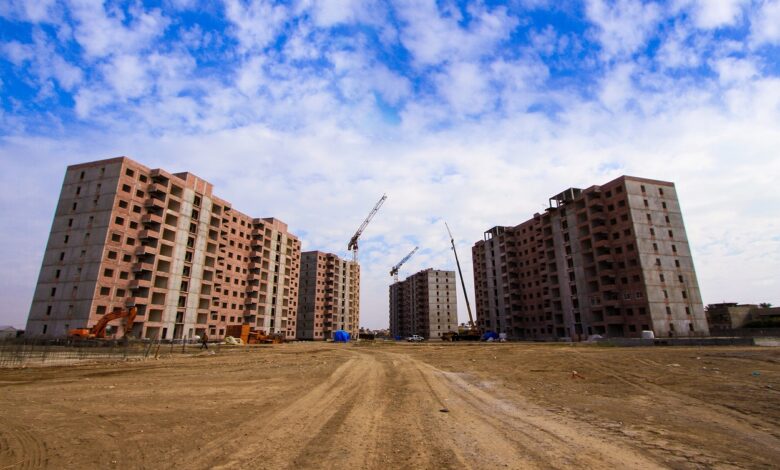The real estate market in Iraq is witnessing a state of stagnation as a result of its inflation of more than 120 percent during the past three years, with the decline in the purchasing power of citizens. Economists indicate that reactivating this sector is done by issuing loans, distributing serviced plots of land, establishing economic housing units, and restricting their sale to those who do not own a home, to avoid the entry of merchants into it and thus raising its prices .
Economic researcher Ahmed Eid says, “The significant increase in real estate prices and the decline in citizens’ purchasing power are reasons that have led to the stagnation of real estate markets in various governorates, and have been limited to certain areas for those with high financial returns, as is the case in residential complexes and investment areas .”
Eid points out that “the corrupt and influential people have turned to real estate to launder money and invest it in this field, especially after the strict supervision imposed by the US Treasury and the US Federal Reserve on the money transferred outside Iraq, which the corrupt people used as a means to launder their illegal money .”
He stresses that “the Iraqi citizen is the most affected as a result of wrong policies and the absence of a strategic vision in the distribution of wealth and social justice, as societal classism has increased under the current political system, in which corrupt people have seized the capabilities of the Iraqi people in various fields .”
For his part, Mustafa Akram Hantoush, a researcher specializing in the financial and banking aspect, explains that “Iraq is witnessing a state of paralysis or stagnation in the real estate market, not a decline, as the inflation that occurred in the real estate market exceeded 120 percent during the past three years, and this did not match the increase in functional revenues and profits .”
Hantoush added, “The prices of residential units start from 150 million dinars and above, so the citizen is unable to buy them, and the one who sells is the one who can buy at the present time .”
He explains that “real estate inflation is much greater than the inflation of citizens’ incomes, so they cannot buy unless there is a lending policy or the distribution of serviced plots of land. They also move if there are economic housing units with simple installments, such as Bismayah and Al-Jawahari .”
In turn, the economic expert, Karim Al-Helou, says, “The aim of the residential complexes was to solve the housing problem in Iraq, by giving housing to those who do not own it, but this condition was lifted in 2018, and thus traders entered the market and bought thousands of housing units, and began selling them at high prices .”
Al-Halou continued, “Also, the exploitation of these residential complexes in money laundering cases by those who have a lot of money as a result of administrative corruption led to an increase in their prices. However, after the events in Palestine and Lebanon, there was a fear of buying the property for fear of the situation and the possibility of the country being bombed due to the participation of some Iraqi factions in the bombing of Israel, so there was a kind of hesitation .”
What also affected the real estate market, Al-Halou explains, is that “the establishment of new residential complexes and the allocation of some of them to workers and unions affected the real estate market and confused it, with expectations of a decline in prices. Vertical construction also contributed to lowering prices, in addition to the victory of US President Trump, which affected the global market amid anticipation of the decisions he will take .”






